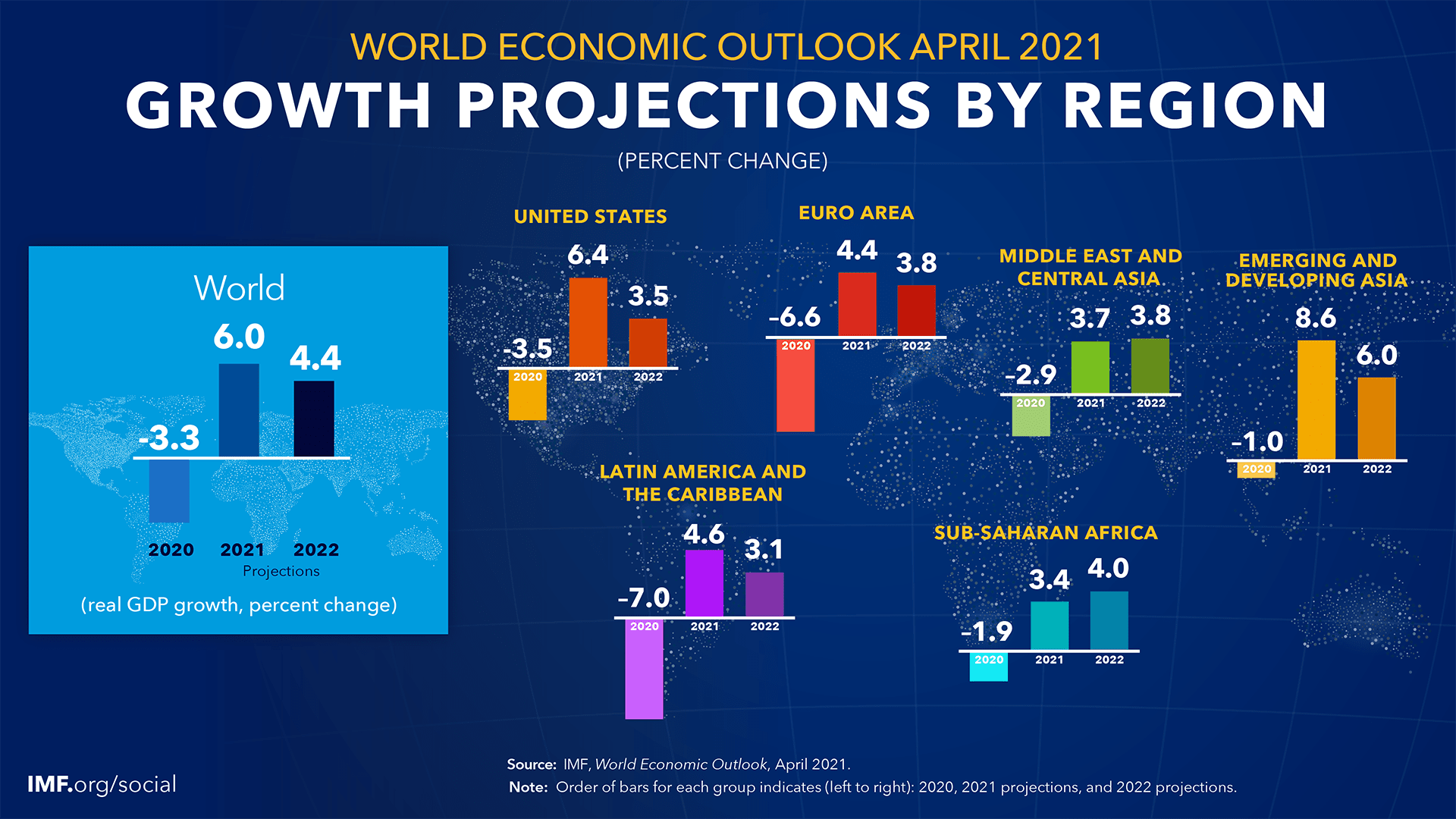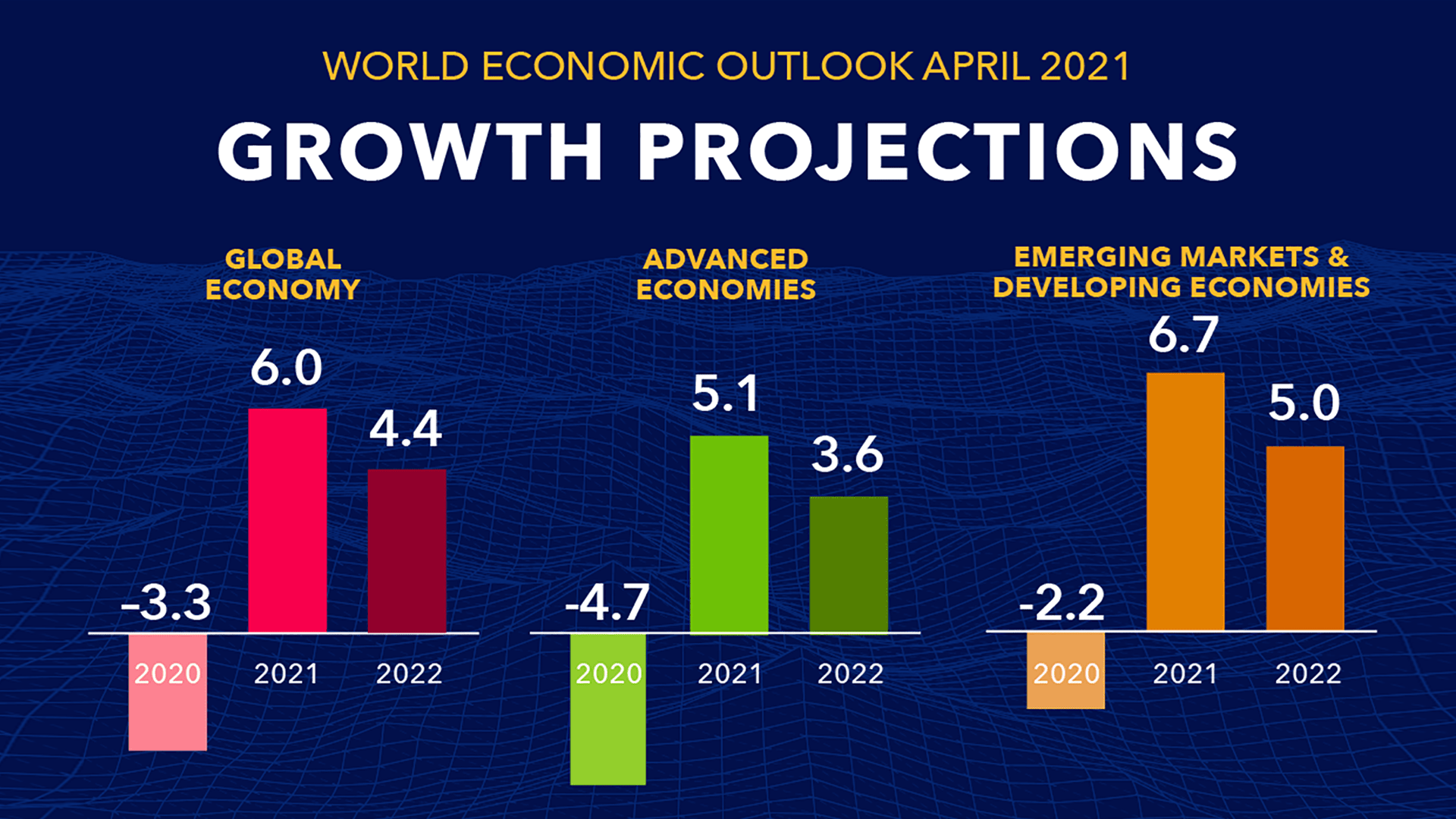UK Economy to Outperform Both Eurozone and U.S. in 2022

The UK economy suffered one of the sharpest contractions of any major economy in 2020, but a stronger post-pandemic bounce back could mean it outperforms its peers in 2021 and 2022 said the International Monetary Fund (IMF) in their April 2021 World Economic Outlook edition.
The IMF on Tuesday released their latest economic forecasts that show they now expect the UK economy to grow faster than that of the U.S. and Eurozone in 2022, with growth of 5.3% forecast in 2021 and 5.1% forecast in 2022.
The economy shrank by 9.9% in 2020 says the IMF.
The IMF said UK growth would be 0.8 percentage points greater this year as a path out of the economic crisis becomes "increasingly visible".
"As the vulnerable population gets vaccinated, contact-intensive activities are expected to resume and drive a significant pickup in growth thanks to pent-up demand funded by accumulated savings in 2020," said the IMF.
The IMF also upgraded forecasts for the U.S. economy by 0.8 percentage points in 2021 to 5.1%, while the 2022 forecast upgrade of 0.5% takes the expected expansion to 3.6%.
The U.S. is projected to return to pre-pandemic (end 2019) activity levels in the first half of 2021 and Japan in the second half.
"At $1.9 trillion, the Biden administration’s new fiscal package is expected to deliver a strong boost to growth in the United States in 2021 and provide sizeable positive spillovers to trading partners," says the IMF.
In the euro area and the United Kingdom, activity is expected to remain below end-of-2019 levels into 2022.
Projections showed the eurozone would continue to lag behind with an upgrade of 0.2% in both 2021 and 2022, taking forecast growth to 4.4% and 3.8% respectively.

After an estimated contraction of 3.3% in 2020, the global economy is projected to grow at 6% in 2021, moderating to 4.4% in 2022.
Although the IMF sees growth ahead they warn uncertainty remains elevated as a vaccine-lead recovery will be questioned by the effectiveness of existing vaccines against new strains of the virus.
"Delays in inoculating all parts of the world could lead to vaccine-resistant virus mutations, new outbreaks could start anywhere and anytime, and renewed restrictions may be required to slow transmission," says the IMF.




